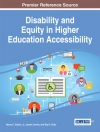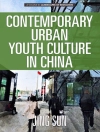Memory is at the center of a diverse array of political conflicts, moral disputes, and power dynamics.
This book illustrates how scholars use different interpretive lenses to study and explain profound conflicts rooted in the past. Addressing issues of racism, genocide, trauma, war, nationalism, colonial occupation, and more, it highlights how our interpretations of contentious memories are indispensable to our understandings of contemporary conflicts and identities.
Featuring an international group of scholars, this book makes important contributions to social memory studies, but also shows how studying memory is vital to our understanding of enduring social problems that span the globe.
Table of Content
1. Introduction: Interpreting Contentious Memories and Conflicts over the Past – Thomas De Gloma and Janet Jacobs
Part 1: Interpreting Memories in the Social Dynamics of Contention
2 On the Social Distribution of Soldiers’ Memories: Normalization, Trauma, and Morality – Edna Lomsky-Feder
3. Feminist Approaches to Studying Memory and Mass Atrocity – Nicole Fox
4. Mobilizing Memories: Remembrance as a Social Movement Tool in the Vieques Anti-Military Movement (1999–2004) – Roberto Vélez-Vélez
5. The Ballot of Donald and Hillary: Hateful Memories of Celebrity Leaders – Gary Alan Fine, Christopher Robertson, and Cal Abbo
Part 2: Racism, Exclusion, and Mnemonic Conflict
6. Building a Case for Citizenship: Countermemory Work among Deported Veterans – Sofya Aptekar
7. Commemorations as Transformative Events: Collective Memory, Temporality, and Social Change – Claire Whitlinger
8. Contentious Pasts, Contentious Futures: Race, Memory, and Politics in Montgomery’s Legacy Museum – Amy Sodaro
Part 3: Genocide, Memory, and the Historicizing of Trauma
9. Remembrance and Historicization: Transformation of Individual and Collective Memory Processes in the Federal Republic of Germany – Werner Bohleber
10. Enlisting Lived Memory: From Traumatic Silence to Authentic Witnessing – Carol A. Kidron
11. Changing Memories of the Shoah in Post-Communist Countries: New Memories and Conflicts – Selma Leydesdorff
12. How Difficult Pasts Complicate the Present: Comparative Analysis of the Genocides in Western Armenia and Rwanda – Jacob Caponi and Fatma Müge Göçek
13. Conclusion: Memory and the Social Dynamics of Conflict and Contention: Interpretive Lenses for New Cases and Controversies – Janet Jacobs and Thomas De Gloma
About the author
Janet Jacobs is Professor of Distinction in Women and Gender Studies and Sociology at the University of Colorado, Boulder.












